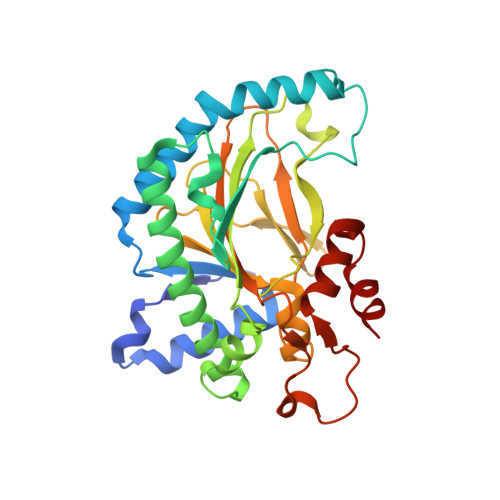Pyrazinamide and derivatives block ethylene biosynthesis by inhibiting ACC oxidase.
Sun, X., Li, Y., He, W., Ji, C., Xia, P., Wang, Y., Du, S., Li, H., Raikhel, N., Xiao, J., Guo, H.(2017) Nat Commun 8: 15758-15758
- PubMed: 28604689
- DOI: https://doi.org/10.1038/ncomms15758
- Primary Citation of Related Structures:
5GJ9, 5GJA - PubMed Abstract:
Ethylene is an important phytohormone that promotes the ripening of fruits and senescence of flowers thereby reducing their shelf lives. Specific ethylene biosynthesis inhibitors would help to decrease postharvest loss. Here, we identify pyrazinamide (PZA), a clinical drug used to treat tuberculosis, as an inhibitor of ethylene biosynthesis in Arabidopsis thaliana, using a chemical genetics approach. PZA is converted to pyrazinecarboxylic acid (POA) in plant cells, suppressing the activity of 1-aminocyclopropane-1-carboxylic acid oxidase (ACO), the enzyme catalysing the final step of ethylene formation. The crystal structures of Arabidopsis ACO2 in complex with POA or 2-Picolinic Acid (2-PA), a POA-related compound, reveal that POA/2-PA bind at the active site of ACO, preventing the enzyme from interacting with its natural substrates. Our work suggests that PZA and its derivatives may be promising regulators of plant metabolism, in particular ethylene biosynthesis.
- The State Key Laboratory of Protein and Plant Gene Research, School of Life Sciences, Peking University, Beijing 100871, China.
Organizational Affiliation:


















